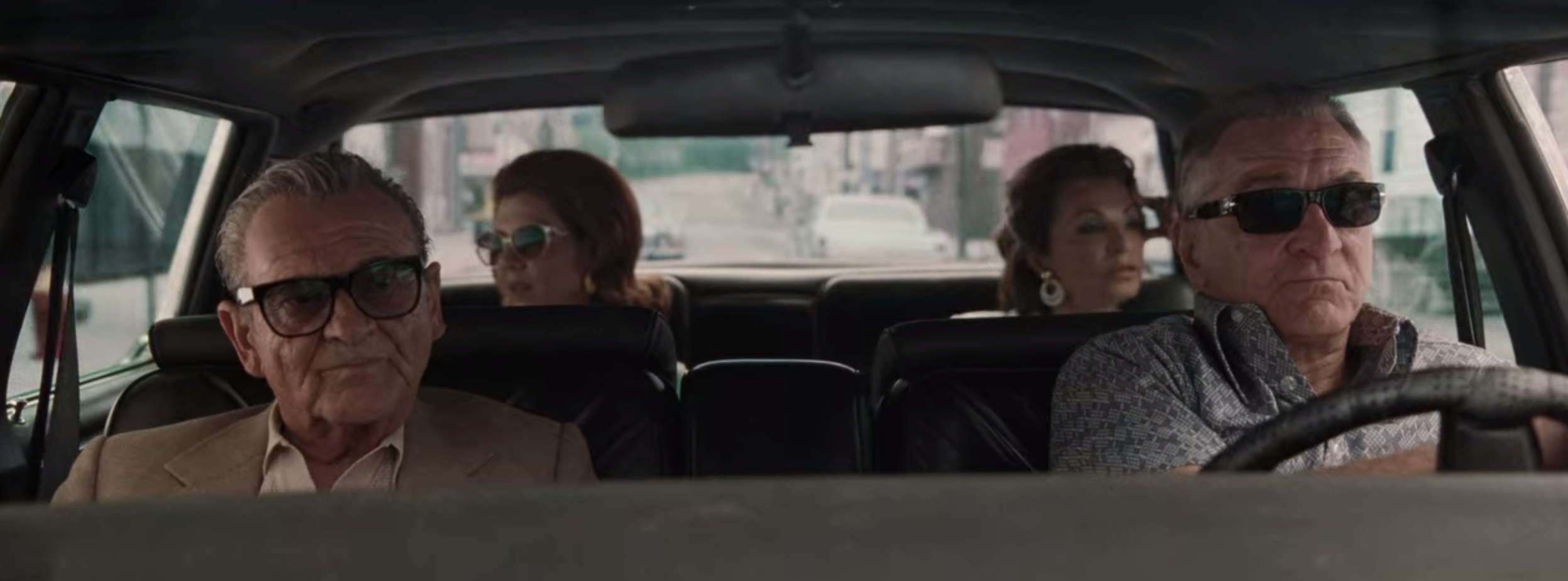Strong themes make this long film worth the watch
Martin Scorsese’s The Irishman is a complicated film. Bound to the confines of a nursing home, truck-driver-turned-hitman, Frank Sheeran (Robert De Niro) narrates several decades of his life, discussing entering organized crime and the hits of his career. Sheeran enters this world through a Pennsylvania mob family, the Bufalinos, and along the way meets Jimmy Hoffa (Al Pacino), the leader of a labour union with connections to organized crime. On the surface, The Irishman is a story about a man climbing the ranks in the criminal world. Underneath, there’s so much more to it, with themes of guilt, loyalty, relationships and family.
Although the premise is simple, several chapters in Sheeran’s life are depicted nonlinearly. The timeline of the film is edited expertly by Thelma Schoonmaker, who has been Scorsese’s editor for over 50 years. With that in mind, The Irishman takes very striking liberties with its editing, from abrupt music cues and cuts, non-simultaneous intercuts, out-of-place jumpcuts and shots that only make narrative sense once the movie is over. At some points, the time jumps can be confusing, making some scenes difficult to follow, but the film was easy to understand even with that uncertainty. Needless to say, the editing was risky and seemingly unusual at times.
The film had a great sense of time, place and character. Everything was thought of meticulously, slowly building up to a climax in the film’s final scenes. Of the three and a half hours, the first two were fantastic, and the last 15 minutes were extraordinary. The pacing was strong and the tension was there. But, there was a lump in the middle that lost my interest and was difficult to get through. I’ll admit, it is a very long movie, and it does feel that way. For young people who didn’t grow up with Scorsese gangster flicks, it could even seem boring and hard to finish. It took me more than a day to watch it, so don’t be afraid to take your time.
The Irishman could be interpreted as a simple gangster flick, but it transforms into something more. We feel Sheeran’s family crumble as his daughter rejects him, his friends become more and more powerful and difficult choices about loyalty emerge. By the end, you realize it’s a story about relationships and, sadly, regret. It asks questions about growing old, and makes you wonder if Sheeran’s actions were actually worth the loneliness they would cause later on.
The core message of the film could have been conveyed in two hours. But, Scorsese made it three and a half, and somehow, none of that time feels unwarranted. Sure, it’s slow, but it takes its time with each scene. It allows dialogue to flow, it allows actors to become cemented into their performances and it allows the scene to resonate with the audience.
The Irishman is a refreshing break from the onslaught of films that are paced way too quickly, and for that reason, I think Schoonmaker and Scorsese did it right.




